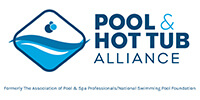Winter Tip of the month, we focus on calcium hardness (the step child of pool chemistry)

11/01/2010 | Categories: Pool Maintenance
Calcium Hardness
When we speak of scale, we are talking about calcium carbonate which has come out of solution and deposited itself on surfaces. It is a combination of carbonate ions, a part of total alkalinity and calcium, and a part of the Calcium Hardness level. The test for Calcium Hardness is a measure of how “hard” or “soft” the water is testing. “Hard” water can have high levels of calcium and magnesium. If these levels are too high the water becomes saturated and will throw off excess particles out of solution which then seeks to deposit themselves on almost any surface inside the pool. This is calcium carbonate scale; a “white-ish,” crystallized rough spot. If the levels are too low, the water is under-saturated.
If under-saturated, the water will become aggressive as it attempts to obtain the calcium it needs. Such “soft-water” will actually corrode surfaces inside the pool which contain calcium and other minerals to maintain its hardness demand. If your Calcium Hardness levels are too high you can use TSP to lower the levels or a product called Scale Tech. It can also be accomplished by dilution (adding water to the pool which has a lower calcium hardness content). Levels which are too low require the addition of calcium chloride. Recommended range for calcium hardness is 200-400ppm. Calcium Hardness levels should be tested weekly.
For in College Station TX, please contact us today.















